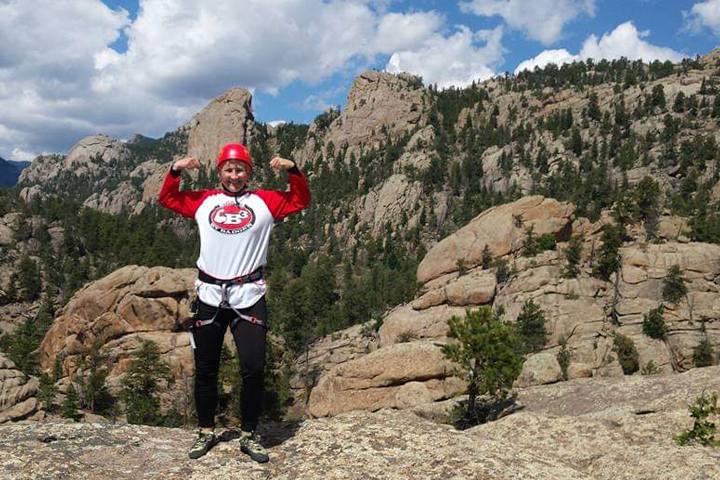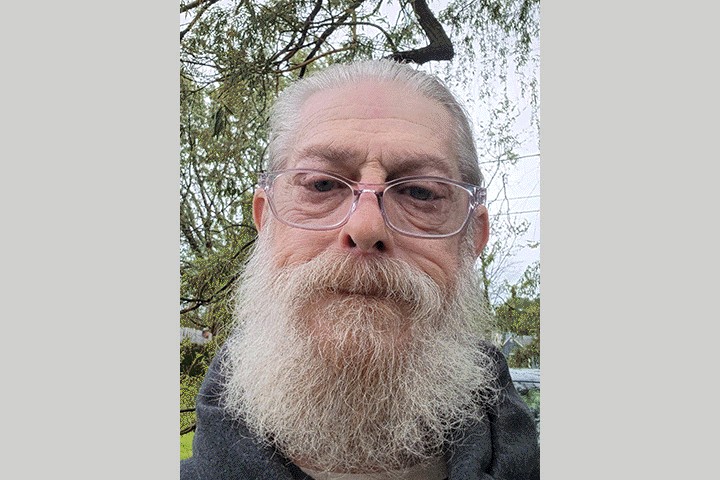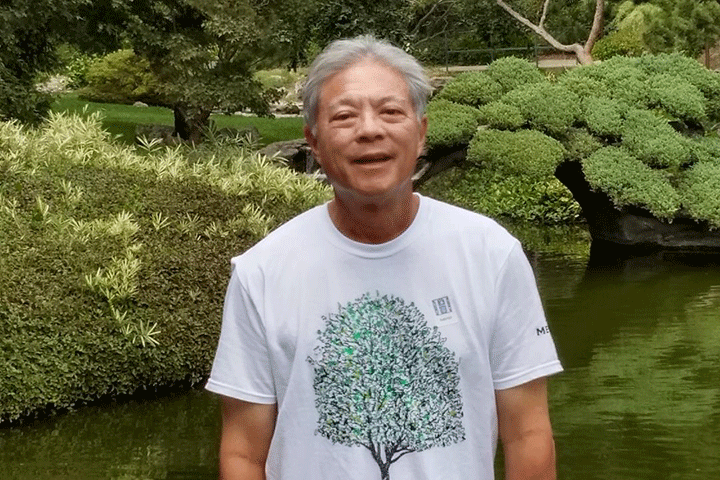My Journey Through Stage IV Pancreatic Cancer

- After stage IV diagnosis, unhappiness with treatment options
- Traveling to a place that gave me hope
- Grueling treatment, with support from my facility and my mom
- Giving back after treatment ends
One day during my workout, I was stretching out on a Pilates ball and noticed a bump protruding under my left rib cage; I knew that something was not right.
It was Spring 2008. I was very tired, was having a hard time eating, and had lost 60 pounds—I was a skeleton. In general, I was having extreme back pain under my shoulder blades and I just hurt . . . all over. I felt like I was dying.
I went to my primary care doctor and had a CT scan and an ultrasound performed. Four days later, the physician assistant told me that I had a mass in my pancreas and lesions on my liver. Holding back tears, I asked if they could take them out. But she said they couldn’t. The physician assistant mentioned that I should see an oncologist. That was the first indication she was talking about cancer.
Seeking Treatment for Stage IV Pancreatic Cancer
Two weeks later, in June, I was able to see an oncologist near my home outside Bangor, Maine. Between the two appointments, I did a lot of research on pancreatic cancer. When I got to the oncologist’s office, I was told I had stage IV pancreatic cancer. The doctor recommended a particular chemotherapy regimen, which I did not believe was appropriate for me, based on my research. I also asked about other treatment options and was told no other options were available. I sought a second opinion from the Dana-Farber Cancer Institute in Boston, but they recommended the same approach. I was told I had six months, but I wasn’t prepared to accept that.
A few weeks passed by and I remembered commercials I had seen for Cancer Treatment Centers of America (CTCA). Determined to find out whether other treatment options were available to me, I made a phone call. I spoke with an Oncology Information Specialist at CTCA, who provided me with lots of information. CTCA had what I was looking for, and I was interested. I chose to fly to CTCA Chicago to learn more.
That August, I flew to Chicago with my mom. As soon as we walked in the front doors, I knew this was the place I needed to be. That day, I met with my nurse navigator, who explained how things would go for my evaluation and consultation. I first met with my intake physician; then I started all the testing—a bone scan, CT scan, and PET/CT scan to confirm the diagnosis and determine whether the cancer had spread anywhere else. Next I met with all the people who would provide me with supportive care services. Then I met with my medical oncologist, Dr. Robert Levin. We discussed my treatment options. Everything was coming together the way I needed it to. Together we chose a treatment plan, and I was ready to fight.
My Treatment at CTCA
That weekend, my mom and I stayed in town and participated in day trips to local attractions, something the hospital organized for patients and their families. We went on a boat ride and to the Bristol Renaissance Faire, in Kenosha, Wisconsin. That was the best thing because it really helped take our minds off what I was about to go through the next week—beginning my pancreatic cancer treatment.
I started a chemotherapy regimen, which included intravenous chemotherapy with FUDR (floxuridine) and leucovorin, as well as intra-arterial chemotherapy to both my liver and pancreas, with cisplatin, mitomycin, and a third drug that I can never remember the name of.
The intra-arterial chemotherapy, in particular, was intense. But it knocked my tumor markers down dramatically. I went through four rounds of intra-arterial treatment. I experienced side effects: fatigue including nausea, low red blood cell and platelet counts, and hair loss. I also needed numerous blood and platelet transfusions. But in the six months after the final intra-arterial treatment, I started to gain a little bit of strength back.
For more than three and a half years, I returned to CTCA every month for five to six days at a time. I received chemotherapy intravenously and took advantage of all the supportive care services CTCA offered.
The naturopathic provider on my care team helped me cope with nausea by suggesting various supplements. Also acupuncture helped with hot flashes and night sweats, and the chiropractor at the hospital realigned my spine, which was out of whack from a sports injury. I had massages as well. On the days when I’d have my massage and chiropractic adjustment, I felt so relaxed.
During the treatment, I did a ton of juicing. That’s how I got a lot of my fruits. I juiced apples, carrots, red grapes, pineapple, strawberries, blueberries, and cantaloupe. It was fabulous! I did this once a day. And when I was at the hospital, the culinary staff prepared my juices for me.
The spiritual support I received at the hospital helped renew my faith. And my mind-body therapist was a godsend to my mother and me. The therapist was somebody I felt comfortable talking to, and she helped me get through some really difficult times.
Long-Term Chemotherapy Gets Results
The first year of my treatment was really hard. In the second year, I felt as though my body regenerated itself. My energy level was great, for a cancer patient. Granted, it took me a couple of days to recoup after I received five days’ worth of chemotherapy. And some months were better than others. But overall, I had pretty normal energy levels three weeks out of the month.
On the two-year anniversary of my fight, I had my first beer since being diagnosed. I couldn’t drink for a while, and I didn’t want to. But two years is definitely a momentous event, especially for a pancreatic cancer patient.
In 2012, I stopped taking chemotherapy—about six months after, I thought my cancer was back. I was in SEVERE pain! I went to CTCA and they found that my pancreas had shriveled up. All that could be seen was a bit of the head.
Today, I follow a very healthy diet and exercise because I am borderline diabetic and my A1C level keeps creeping up. I have to take pancreatic enzymes every time I eat. I return to CTCA every six months for checkups.
My Life Now
I have found a renewed LOVE for the outdoors! Hiking and camping are where you will find me in the summer. Once in a while I pick up the golf clubs. I love flowers too. I don’t get out to do these things as much as I would like. I have had awful pancreatitis over the past six months, and I had a celiac nerve block in March 2019. I also have some digestive problems, but I still try to keep a positive attitude. What else can you do!
I also started an initiative to raise awareness for pancreatic cancer. It began as the Purple Iris Brigade, and became the Purple Iris Foundation, an official nonprofit, in 2012. We’ve bought thousands of purple irises from the local garden club and planted them throughout the community, in our HOPE gardens. We also offer online peer support groups for all cancer patients/survivors and caregivers, especially pancreatic cancer patients/survivors. We have the Maine Cancer Outdoor Adventures program for those impacted by cancer, and we hold a Light the Night for HOPE vigil in November (Pancreatic Cancer Awareness Month). Our Purple Elf Project helps families battling cancer by filling needs—giving them Christmas, heating oil, gas cards, grocery cards, or other things like that.
When you have had 11 BONUS years, instead of the six months I was told, LIFE is GOOD and I AM truly blessed!
Watch Chris tell her story in the video “Be Your Own Best Advocate.“






